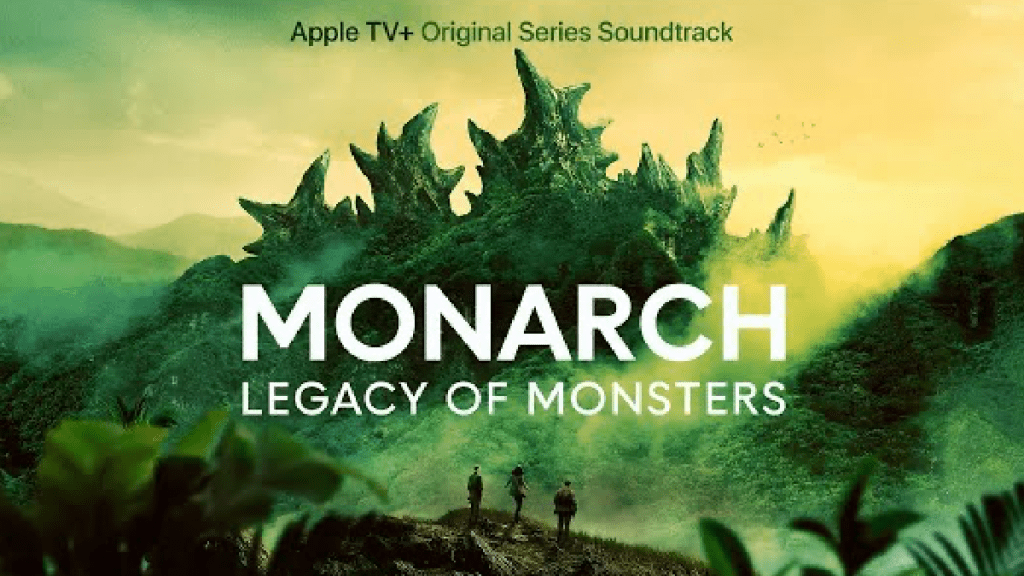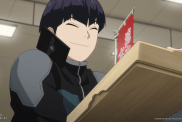ComingSoon spoke with composer Leopold Ross about his work on Apple’s Monarch: Legacy of Monsters. The show centers around Monarch organization members as they navigate encounters with Godzilla and other formidable creatures referred to as “Titans” across a half-century timeline, extending from the events depicted in Godzilla (2014). The first three episodes are now available on Apple TV+.
Jeff Ames: How did you approach scoring a series like Monarch: Legacy of Monsters, which explores the aftermath of the battle between Godzilla and the Titans, revealing the existence of real monsters?
Leopold Ross: The opportunity to score the indomitable screen legend Godzilla sparked a wave of creativity and adrenaline in me from the word go. The melodic themes came quickly, and from there, it was a process of finding the right voicing and instrumentation that would match the epic scale of the production.
There is so much breadth in the show- deep emotional turmoil, comedic levity, huge action sequences- so much to articulate, which is a joy for a composer, as it allows you to really spread your wings.
With the series set in a world where monsters are real, how did you use music to enhance the suspense and capture the awe-inspiring nature of these creatures?
Scoring the titans was a really unique challenge as a composer, because the level of bombast is so extreme coming from the sound effects. So it really becomes about bobbing and weaving and knowing when not to play is kind of the most important thing because you want to hear that twisted metal when Godzilla puts his fist through the Golden Gate Bridge and when he roars it’s an incredibly unique and iconic sound that you don’t want to get in the way of, so it’s really about making sure the momentum and intensity is there, and then picking your spots to stand out.
Monarch: Legacy of Monsters delves into a family’s journey to uncover buried secrets. How did you convey the emotional depth and complexities of their story through the musical score?
I wanted the music to carry a sense of yearning, to amplify the unresolved feelings that our characters hold. I set about creating simple melodic motifs that could be inferred via a wide range of instrumentation and could sound musically resolved or unresolved depending on the surrounding accompaniment.
Working with directors Mairzee Almas, Julian Holmes, Hiromi Kamata, Matt Shakman, and Andy Goddard, how did you collaborate with them to ensure the music complemented the visual storytelling?
Most of my creative and collaborative conversations were with executive producer and showrunner Chris Black. This is typically the case when working in an episodic format as it allows you to develop a shorthand and maintain a consistency in approach that you would not be able to achieve talking to a different director every episode. Having said that, Matt Shakman directed episodes 1 and 2, and we did collaborate in an effort to set the tone of the show going forward.
Given the legacy theme in the series, did you incorporate any recurring musical motifs or themes to represent the connections between characters and the overarching Monarch legacy?
Yes, there are several motifs that recur across the season. Most notably, the main title theme is reprised throughout the show in a variety of iterations and represents the idea of legacy, whether that be familial legacy or the legacy of Monarch.
Were there any specific challenges in composing for a series that involves both human drama and the larger-than-life presence of monsters? How did you balance these elements in the music?
The concept of a family drama playing out in a world where monsters exist allowed for such a rich spectrum of emotions to be articulated in the score. To be able to weave heart-rending family trauma, with the spectacle of titan battles, and the added layer of the dual timelines, meant that there was so much to sink my teeth into as a composer, and I was given such creative freedom to embellish the world that the writers created. If I had to highlight a challenge, I think that it would be finding moments to breathe, and let the story unfold without music.
Can you share any insights into your creative process when scoring pivotal moments in Monarch: Legacy of Monsters, without giving away spoilers, of course?
I began writing the music before seeing any images. I read all of the scripts and let my mind wander based on the inspiration of what I imagined the characters to be. This is often step one for me…from there, I share my early sketches with the director/producers and start to get a sense of what is connecting, and then build from there. I find that it becomes a more collaborative process doing it this way.
The series explores the secrets hidden within the Monarch organization. How did you use music to create an air of mystery and intrigue surrounding these revelations?
When it comes to mystery and intrigue I find subtlety is the best approach. I was blessed with a cast that delivered excellent performances, so it was really a case of ‘less is more’- I was simply embellishing the acting rather than having to prop them up.
Were there any unique instruments or musical techniques you employed to capture the essence of the monster-filled world depicted in the series?
I layered orchestral brass sections with distorted electric bass guitars and modular synthesizers to achieve a larger-than-life scale that matched the Titans presence.
Monarch: Legacy of Monsters is part of the Godzilla franchise. Did you draw inspiration from any previous Godzilla film scores, and how did you put your own creative spin on the musical identity of this series?
In the same way that legacy is such an important theme of the show, legacy within the canon of the monster verse was also something I took into consideration in the music, and I think I’m correct in saying that it was also considered in the writing/the cinematography/the sound effects. The challenge was – how do we stay true to the aesthetic while also allowing ourselves enough space to carve our own niche.
And I think the answer, honestly, at least musically speaking, was trial and error. There were some things that just clicked right away—for example, the main title theme—and there were others that got refined over the course of post-production as we found “our sound.”










